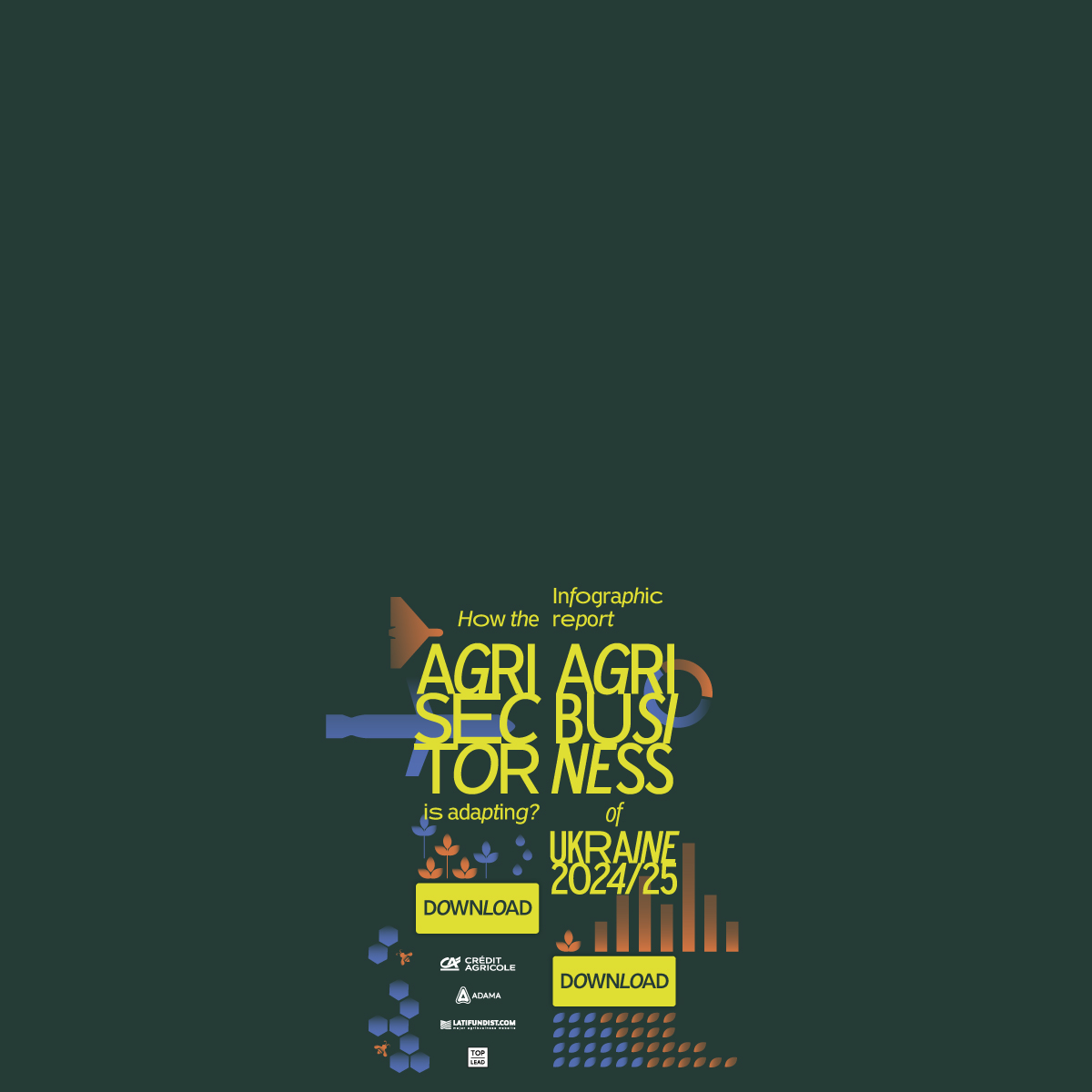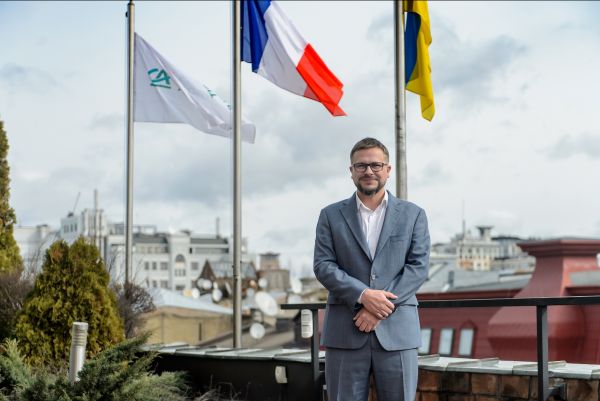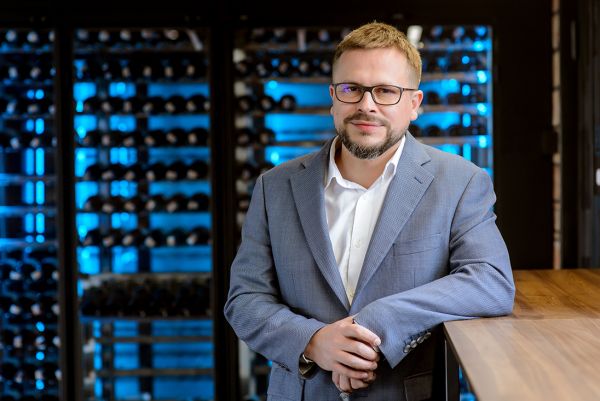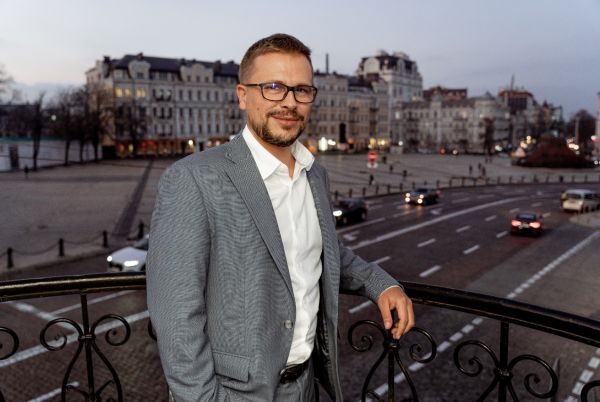International Grants and 5-7-9% Should Be Offered for Specific Projects — Alexandre Tchesnakoff
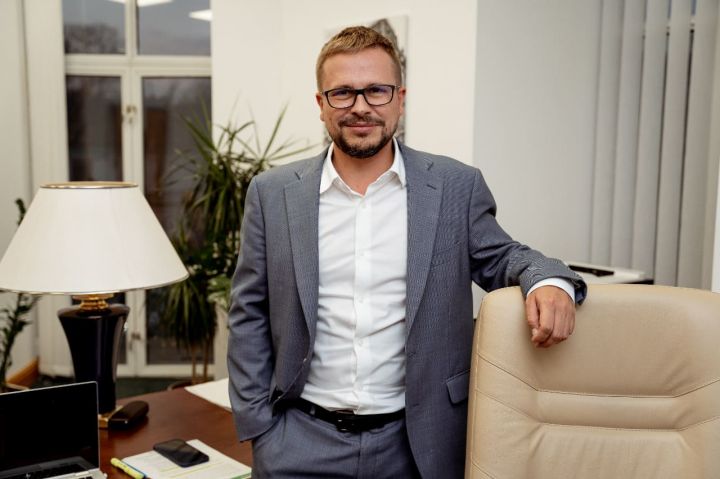
Photo by: Latifundist.com
“The market should gradually wean itself off the 5-7-9% vitamin cocktail,” — told us Alexandre Tchesnakoff during our April conversation this year. Since then, Credit Agricole Bank top manager not only hasn’t changed his mind but has doubled down on the idea: the market is returning to prewar operations, and one must work in a competitive environment. We are here to compare notes with the banker: what are the hot topics on the agricultural market right now, what are its financing needs and are the banks prepared to satisfy its appetite?
We will also discuss sustainable technologies, carbon loans and whether the bank is going to get involved, we will also enquire how the agrarians are preparing for blackouts and why the era of fast cost recovery of solar power stations is over. We posed our questions to Alexandre Tchesnakoff, a Board Member of the bank, responsible for corporate business, agri-agro, small and medium business, financial markets and leasing.
International grants and 5-7-9% should be offered to those who need them
Latifundist.com: In April, you told us that the market is gradually returning back to normal. At the end of the year, we see that the “grain corridor” is functioning, and grain and oilseed prices are on the rise. Can we say that it is returning to the pre-war level?
Alexandre Tchesnakoff: Indeed, for the banking industry, this year really resembles the pre-war period. Firstly, we have more demand from customers for various needs, namely for investment projects, and working capital. However, in the pre-war period, there was not as much demand for energy independence financing, as we saw in the summer.
Secondly, I am of the opinion that the Affordable Loans 5-7-9% and grants from international donors somewhat distort the competitive banking market. As, on the one hand, the banks got the customer demand back, on the other — the financing terms are nearly identical at all the banks. This fact negates the defining features of each bank, these programs put all the market players on the same level, while all the banks are different — in terms of character, strategy, investment, composition, and culture.
Latifundist.com: Compelling observation, however, these programs have been quite helpful.
Alexandre Tchesnakoff: Right, Affordable Loans 5-7-9% and grants by USAID, and IFC are beneficial, especially for customers and companies that have been affected by the war the most, however, they devalue the money. As, by nature, money has a certain value. It saddens me to see that the market starts moving only after the new wave of grants arrives. For instance, a certain bank has received a grant and people start buying equipment.
At the same time, there is also a positive trend. I can see that the grants are more frequently offered for the specific needs of the customers, there are certain criteria that the businesses have to meet. There are grants for companies that operate in proximity to the frontline or for those that employ a certain number of veterans. Such grants make sense, as they are good for the market.
Latifundist.com: It seems that you stand firm on the idea that the market should give up the, 5-7-9% vitamin cocktail. However, the program now emphasizes financing the processing projects or companies operating in the areas with the war risks.
Alexandre Tchesnakoff: I am leaning towards the idea that we should return to the market conditions. Just think of the time when the 5-7-9% program came to be. During Covid-19. It was a helpful product at the time. It became particularly beneficial at the start of the full-scale invasion when the key policy rate was high. Now the key policy rate has normalized, as we had seen 13% per annum before the war and the economy was developing well.
Even then, each bank will determine its strategy and will lend more. Any banker wants their customers to grow — it will also help us grow in the future. We grow alongside our customers. That is why I advocate for the state program to focus more on customers who were truly affected by the war.
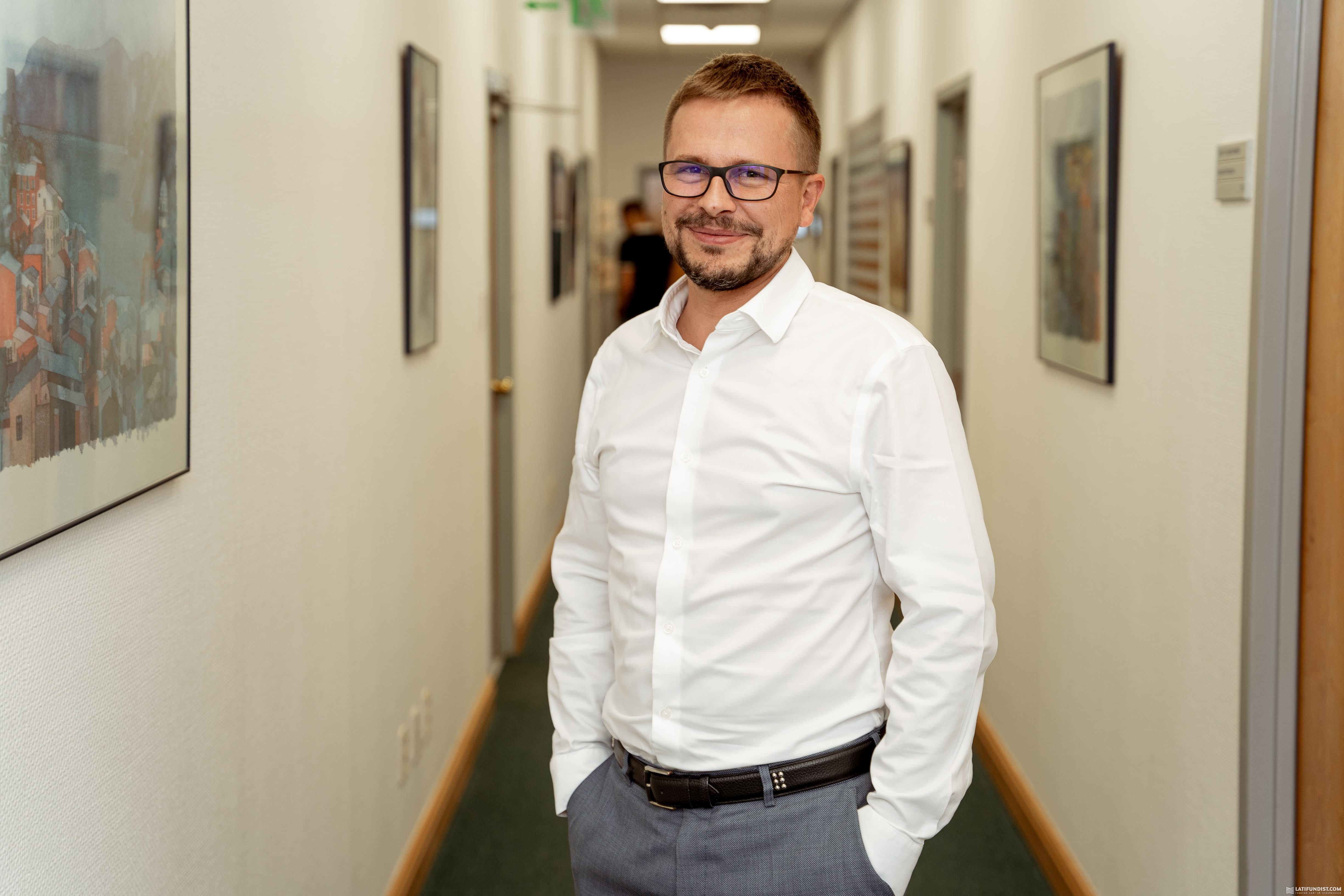
Latifundist.com: You said that the grants distort the market competition, whereas Credit Agricole Bank has also recently signed the shared financing agreement with USAID for USD 1 million.
Alexandre Tchesnakoff: Yes. Actually, it took us nearly a year to develop this program. Such projects usually require lengthy discussions with all the participants. First loans have been issued already. And there is more to come. There is demand from the agrarians. The program is fairly simple. Customers who use the leasing services will get 10-15% cashback from the financing amount or USD 5 thousand. The cashback amount depends on the leasing object. Also, cashback is not applicable to everything, there are certain criteria.
The grants do distort the reality. Another question is how to use grants. We use them in a different way to support the customers affected by the war.
Energy independence: what the agrarian companies need financing for
Latifundist.com: Lending programs for energy independence are probably offered by all the Ukrainian banks. What sets you apart?
Alexandre Tchesnakoff: Credit Agricole is a large group present in 46 countries worldwide that has extensive experience with customers’ energy independence loans. We now utilize this experience in Ukraine. Even before the full-scale invasion, we gave out loans for alternative sources of energy. Granted, the demand wasn’t nearly as high as it is now. The full-scale invasion by russia in Ukraine and continuous attacks on the Ukrainian energy system accelerated the development of renewable energy sources in the country. This year, we launched the sustainable development strategy in order to help our customers contribute to environmental protection and climate change counteraction. We have a respective dedicated team. One of the key tasks is supporting customers through energy transition.
Latifundist.com: A banker acquaintance of mine shared that the agrarians, when applying for loans, are guided by the logic: the power outages have started — I go to the bank, if not — it can wait. Is that what it is like?
Alexandre Tchesnakoff: We observed the surge in such type of lending in July-August. Now it’s crickets. Why? It’s a basic human trait: we usually remember about insurance when the house is on fire.
We should also keep in mind that as the full-scale invasion started, the customers were trying to adapt to the war and allocated a lot of funds for the new areas of activity. Whereas now every investment is approached from a prudent standpoint, as the financial reserves accumulated prior to this big war have gradually depleted.
Latifundist.com: Well, if one has no power, the business can halt.
Alexandre Tchesnakoff: True, but everything has a lifespan. For many power generators, it is over. They were not meant to work 24/7, especially in the oppressive summer heat. That is why I can see why customers approach such lending with careful consideration.
It is crucial to find the balance between the temporary need and what awaits Ukraine in the future in terms of energy independence. I have always said that the agricultural work is tough. Farmers must be able to juggle a million parameters that are now exacerbated by the war and climate change.
Latifundist.com: Still, what do people enquire about the most?
Alexandre Tchesnakoff: The range is wide: from windmill power stations to power generators. It depends on the size of the enterprise and its investing capabilities. Working in animal husbandry, when one can install solar panels on the roof is one thing. Dealing with elevators is another thing entirely, as gas turbines or generators are needed to run the grain dryer.
It also depends on the customer’s goals. Some invest in order to generate power not only for their own needs but to resell it to the national grid. Others invest in order to have the minimum required power reserve so that the enterprise can operate.
Latifundist.com: Do you finance these various directions?
Alexandre Tchesnakoff: Our philosophy is to finance the energy projects that prioritize the needs of the customers themselves. If the customer is then able to sell the surplus gas or power in Ukraine or abroad, it is an added bonus. I believe that now it is of the essence to cover one’s own needs in order to alleviate the load on the national power grid.
Latifundist.com: What would you recommend to those who are only planning to take on such projects?
Alexandre Tchesnakoff: First, just like with any other energy project, it is important to know which capacity you need and whether you will be able to ensure the work of the facility. For instance, if we deal with biogas, it is imperative to have access to the raw material. There was this story with our customer when they did not assess their capacity and had to form a logistics unit tasked with the procurement of raw materials. Thus, even when buying a power generator, one must make sure that there is access to fuel. From our side, we recommend diversifying energy sources whenever possible — installing some solar panels, a power generator, etc.
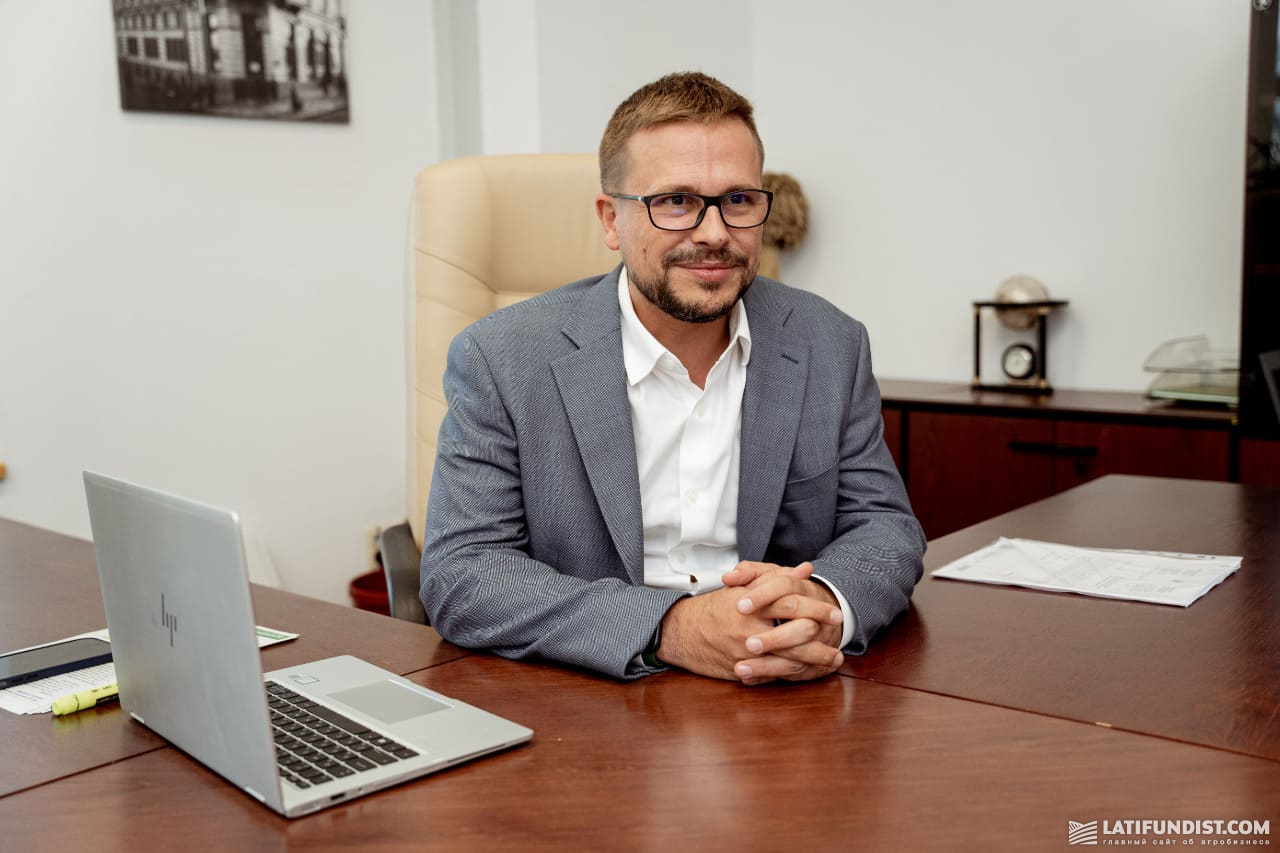
Latifundist.com: Speaking of solar panels, what prevents agricultural businesses from investing in them? Is it that the need for a power socket and electric current remains?
Alexandre Tchesnakoff: I am not sure that this is the reason. I also heard such assumptions. However, I think that the reason is the same as with any business — the cost recovery period. The times when the solar power battery station paid for itself in 3-4 years are long gone now. The customers are aware that it is a long-term investment in the environment when there is no certainty of the future.
Latifundist.com: You have recently signed an agreement with Rayton on financing the solar power battery stations. Why Rayton?
Alexandre Tchesnakoff: They have a highly motivated and dynamic team. Also, they offer effective solutions. Together we launched a lending program and now work to grow the customer portfolio.
Carbon programs or when the “carrot-and-stick” approach is effective
Latifundist.com: Carbon programs are gaining more traction in Ukraine, which are supposed to motivate farmers to reduce СО2. Some banks are also jumping on the bandwagon. What is your opinion? The carbon issue has both its advocates and sceptics.
Alexandre Tchesnakoff: Europe also experienced similar issues and doubts when the carbon programs started emerging there. However, as the international practice shows, it works, provided that two conditions are met: the customers must be motivated and understand what they will get in the end. As ESG (the principles of the company's operations based on environmental protection, creation of favourable social conditions and proper corporate governance — ed. note) means additional expenses. It is profitable only long-term. And not many companies are prepared to wait long.
There is another aspect. There is a phrase “Carrot-and-stick approach” in the English language. Carrot is what I described above. The stick here means requirements from Ukrainian and international regulators that make businesses adopt sustainable practices, or else they won’t get this or that.
Latifundist.com: For a long time, there was neither the carrot nor the stick in Ukraine.
Alexandre Tchesnakoff: Right, but the things are changing now. There is a carrot — carbon certificates. And there is a stick, e.g., you need to switch to sustainable farming practices, because only then will you receive a grant. When these programs just started, one could take it as money from thin air. The customer has already been doing No-Till or Strip-till and gets carbon credits when joining the program. However, in order to get more, the program participation conditions are going to become more rigorous. One will have to prove that they keep investing in this area and show progress.
The carbon programs are somewhat evocative of the 5-7-9% and international grants — in the beginning, they are granted indiscriminately, then the conditions change and only those who need them get them.
Latifundist.com: Do you work with carbon programs?
Alexandre Tchesnakoff: Yes, but we are not publicizing it yet, as we are still in test mode. It is true that it is causing a lot of hype on the market and many players are eyeing the opportunity. So, now we are looking for motivated partners who are with Ukraine long-term.
Latifundist.com: How does it work: the agrarian company switches to regenerative agriculture and you offer them a lower interest rate on a loan?
Alexandre Tchesnakoff: Not exactly. However, often this is the first thing that the customer asks: “What do I get in return? It is a significant expense for me, will you offer me a cheaper loan?” No. It is a significant expense for us as well. We need to assess the ESG. We have created a special dedicated team that works on it. And the ESG loan is actually more expensive than the regular one.
We explain to the customer that it is a long game that will be very beneficial in the future. Everyone is talking of Ukraine joining the European Union. When it takes place, the produce of companies that adopted the aforementioned approach will be valued much higher. In other words, it is delayed gratification.
Place of Ukraine in Credit Agricole
Latifundist.com: I can’t help but ask about the other banking programs, namely, you have been in the automotive lending market for over 15 years. Has the industry slowed down due to the war?
Alexandre Tchesnakoff: We are growing. Each year we sign up new partners. Within the international Group, Ukraine is among the countries with the most extensive partnership programs for the purchase of both vehicles and equipment. By the way, about a month ago, we signed an important partnership program with Claas on the Group level. This is due to the fact that such an agreement had already been concluded in Ukraine.
Latifundist.com: So, within the Group, does Ukraine play its role?
Alexandre Tchesnakoff: For sure. If in 2022 all eyes were on us because of the war, now it is because the business is growing here. The bank in its turn not only supports the customers via financing and expertise but also aspires to provide the best possible service. For the second consecutive year, Credit Agricole received recognition as the best bank in cash management in Ukraine by the international financial journal Euromoney. It is one of the most prestigious awards in the finance sector, the assessment takes into account a number of categories.
Latifundist.com: Circling back, is the share of your agrarian portfolio in Ukraine still +50%?
Alexandre Tchesnakoff: Yes 50%, give or take. Depends on the season.
Latifundist.com: Were there any changes in customer scoring during the last year?
Alexandre Tchesnakoff: Certainly, as we look at customer reporting first and foremost. We also consider credit history and reputation.
For example, a farmer from Kharkiv region works 20 km from the front line. Prior to the full-scale invasion, we financed the combine harvester for him. Sadly, with the start of the hostilities, the machinery was destroyed, but the farmer kept paying the loan. He recently came back to us with the request to finance a new combine harvester. We agreed, regardless of the risks — he works close to the front line and his financial statements are not perfect.
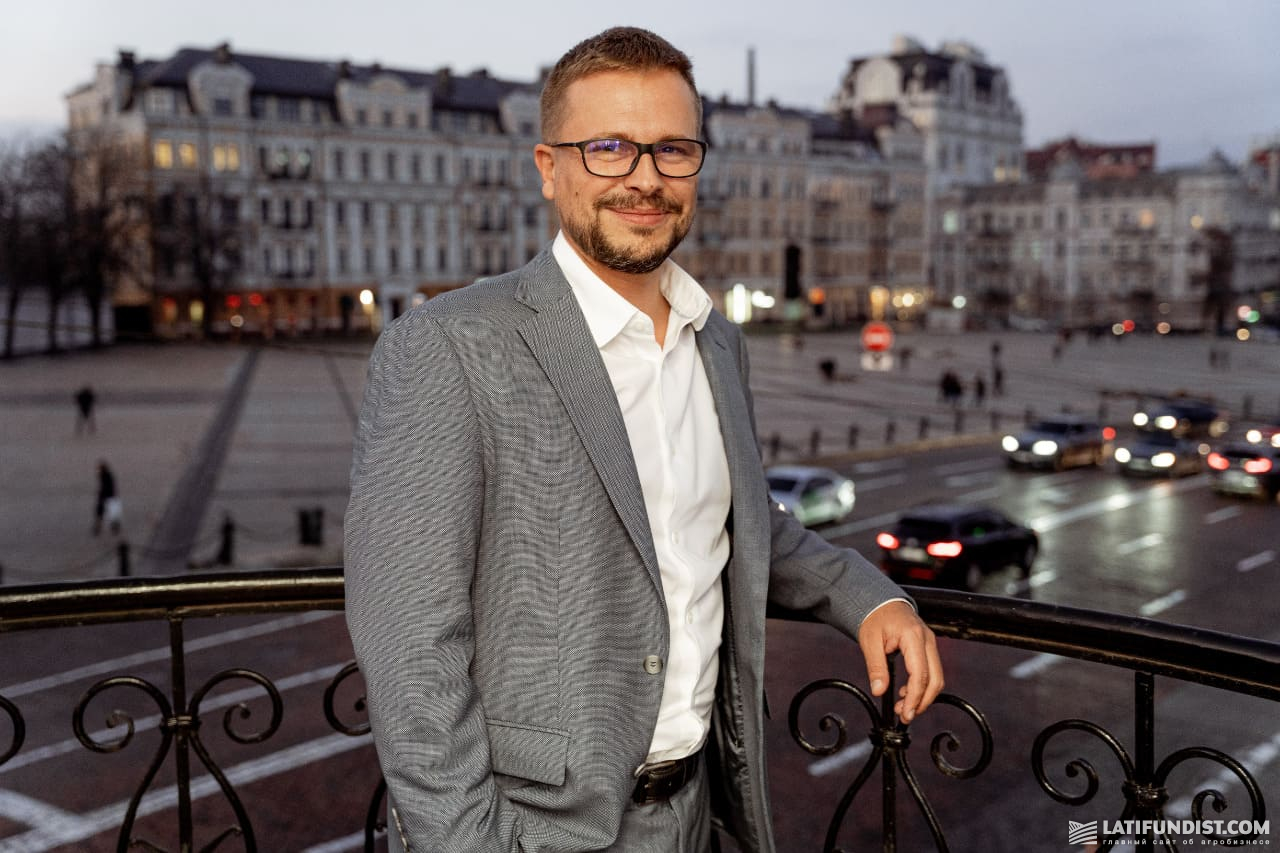
Latifundist.com: A while ago, a banker acquaintance of mine commented on my Facebook post that this year is atypical. In the past, this was the period when the agrarians borrowed money for sowing, while now, instead of borrowing, they are actually repaying the old loans. Do you observe this trend?
Alexandre Tchesnakoff: True, that is the case. However, each year I hear that this year is atypical for one reason or another. Granted, the war has consequences. However, it is worth mentioning that farmers have a much more thought-out approach to lending. They take out loans only if they really need them. If there is a chance to repay the debt early, especially when the prospects are not clear, they take this chance. In 2024, the grain prices are good and those agrarians, who were less affected by the adverse weather, are trying to repay the loan now and obtain financing for sowing later. It is a normal cycle and it may be considered atypical, but these are the rules of the game now.
Kostiantyn Tkachenko, Natalia Rodak, Latifundist.com
